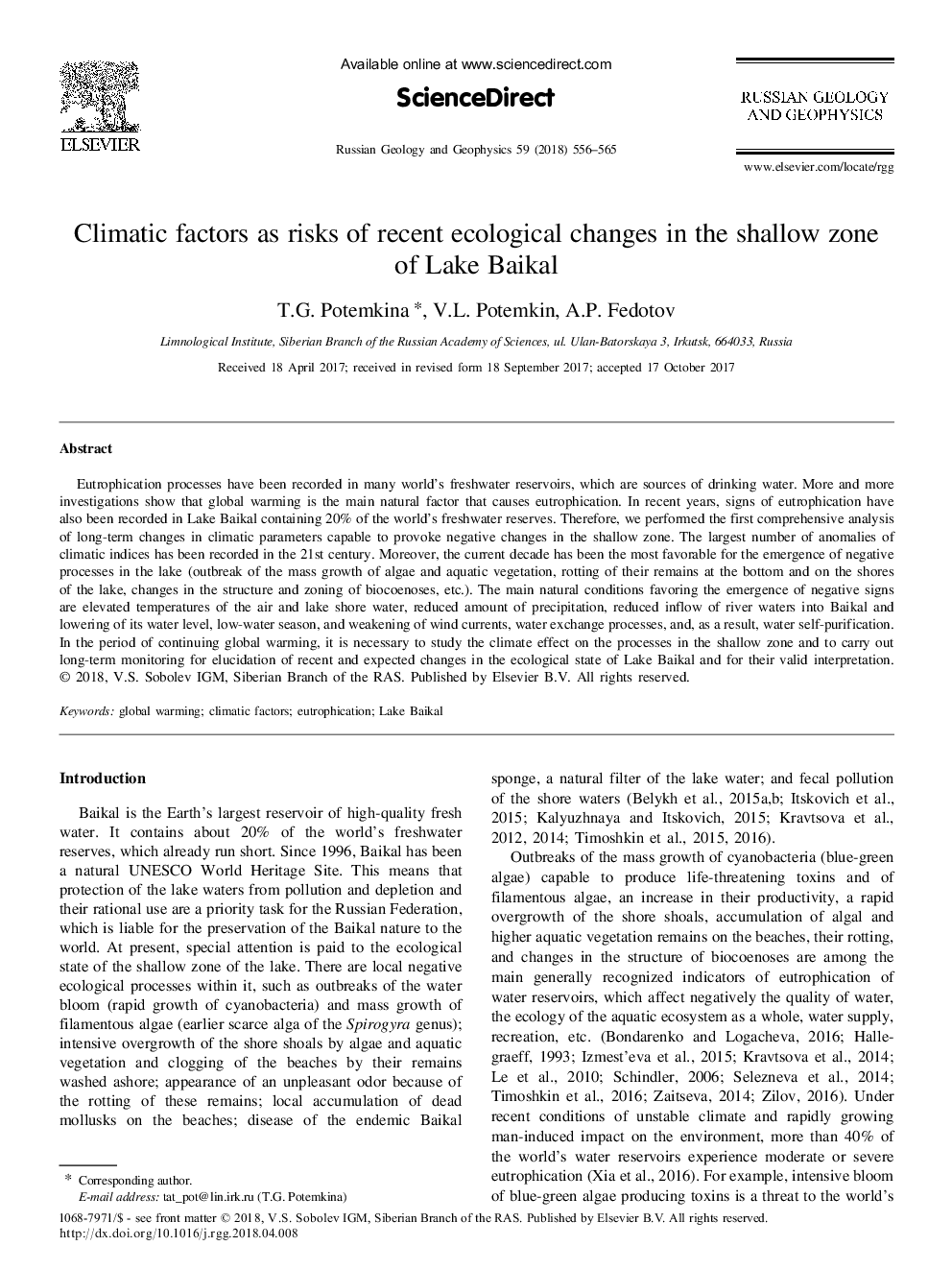| Article ID | Journal | Published Year | Pages | File Type |
|---|---|---|---|---|
| 8915181 | Russian Geology and Geophysics | 2018 | 10 Pages |
Abstract
Eutrophication processes have been recorded in many world's freshwater reservoirs, which are sources of drinking water. More and more investigations show that global warming is the main natural factor that causes eutrophication. In recent years, signs of eutrophication have also been recorded in Lake Baikal containing 20% of the world's freshwater reserves. Therefore, we performed the first comprehensive analysis of long-term changes in climatic parameters capable to provoke negative changes in the shallow zone. The largest number of anomalies of climatic indices has been recorded in the 21st century. Moreover, the current decade has been the most favorable for the emergence of negative processes in the lake (outbreak of the mass growth of algae and aquatic vegetation, rotting of their remains at the bottom and on the shores of the lake, changes in the structure and zoning of biocoenoses, etc.). The main natural conditions favoring the emergence of negative signs are elevated temperatures of the air and lake shore water, reduced amount of precipitation, reduced inflow of river waters into Baikal and lowering of its water level, low-water season, and weakening of wind currents, water exchange processes, and, as a result, water self-purification. In the period of continuing global warming, it is necessary to study the climate effect on the processes in the shallow zone and to carry out long-term monitoring for elucidation of recent and expected changes in the ecological state of Lake Baikal and for their valid interpretation.
Related Topics
Physical Sciences and Engineering
Earth and Planetary Sciences
Geology
Authors
T.G. Potemkina, V.L. Potemkin, A.P. Fedotov,
